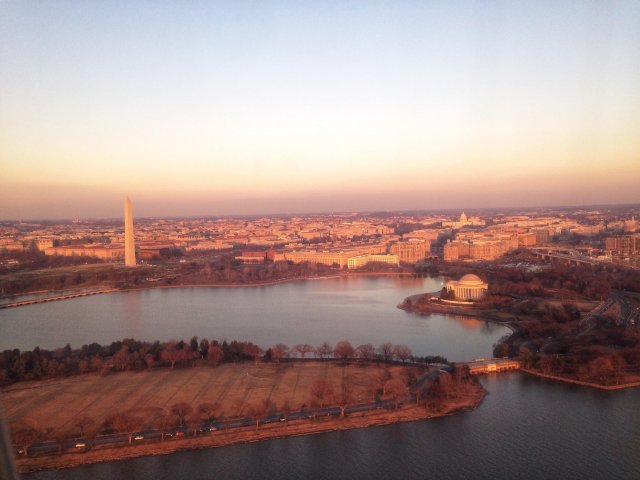Metropolitan Washington Council of Governments Identified Smart Growth Strategies for More Resilient Communities

The Metropolitan Washington Council of Governments (MWCOG) worked with EPA through a technical assistance project to help develop policy options for the consideration of its local jurisdictions. The project sought to help local communities prepare for hazards and impacts from changing environmental conditions while bringing other environmental, economic, and social benefits.
To determine regional vulnerabilities, MWCOG used regional projections from the 2009 National Climate Assessment combined with findings from:
- Maryland and Virginia state climate commissions
- University studies
- Regional planning group assessments
- Input from local government staff
MWCOG relied on its standing committees (made up of representatives from its member jurisdictions) for input on the project related to buildings, land use, transportation, and water sectors. MWCOG also sought to keep its members engaged throughout the process.
This regional effort provided localities with information that would have been difficult to develop and duplicative if conducted separately. The information provided included an analysis of projected hazards and impacts and how they would affect different sectors.
The effort raised awareness of preparedness and resiliency activities in the region. In addition, local governments were encouraged to explore multi-benefit strategies while anticipating, planning, and preparing for projected changes. This effort also resulted in EPA developing the report: "Using Smart Growth Strategies to Create More Resilient Communities in the Washington, D.C., Region (2013)".
| How Did They Do It? | Applicable EPA Tools |
|---|---|
MWCOG reviewed vulnerabilities and identified potential preparedness and resiliency strategies.
| EPA’s Local Government Climate Adaptation Training provides a better understanding of how changes in the environment can impact municipal services. |
| Under the technical assistance program, and with input from MWCOG's stakeholders, EPA developed Using Smart Growth Strategies to Create More Resilient Communities in the Washington, D.C., Region, to give local governments policy options to consider when preparing for future risks. | Using Smart Growth Strategies to Create More Resilient Communities in the Washington, D.C., Region guidebook helps identify policy options for your community to consider when preparing for future risks. |
MWCOG engaged member jurisdictions to spread awareness of potential preparedness and resiliency strategies.
| Visit the Climate Resilience Toolkit to find more federal trainings and resources that can help communities spread awareness of potential preparedness and resiliency strategies. |
Similar Cases and More Information
To find out more about the region’s activities on climate adaptation, visit the MWCOG’s Climate Change Impacts and Adaptation web page. Many other communities have collaborated with neighboring municipalities, regional entities or with non-profits to support planning efforts.
To view another case where multiple government jurisdictions collaborated to perform a regional projection for sea-level rise and identify adaptation options, view the Southeast Florida Regional Climate Compact. Finally, view the Anacortes Water Utility to see how another community used a regional assessment, conducted by a neighboring municipality, to rebuild their water treatment plant and account for future risks.
- Climate Change Impacts and Adaptation web page
- Southeast Florida regional Climate Compact
- Anacortes Water Utility
